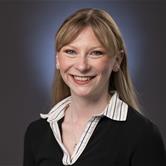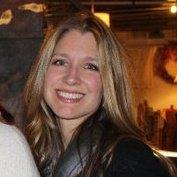What does the Mathematics program offer?
The Bellarmine Mathematics program allows students to pursue either a Bachelor of Arts degree or a Bachelor of Science degree. The B.A. degree has a stronger tie to the liberal arts and is common for students wanting to become teachers. Those interested in teaching may also pursue early entry into Bellarmine’s Master of Arts in Teaching degree. The B.S. degree is common for students who plan to pursue graduate study in mathematics or a related field.
Mathematics majors in either degree track are well prepared—and highly sought after—for positions in statistics, systems analysis, business, the biological sciences, and more.
What makes Bellarmine’s approach to Mathematics stand out?
A great benefit of the Bellarmine Mathematics program is the teamwork approach used in courses, where small groups work together. This is an exciting and effective way to learn, and it is good experience for future careers. With small class sizes, professors in the Mathematics department get to know their students well and can more effectively offer mentorship and support.
The Student Perspective
 Lilli Evans is a senior double majoring in Mathematics and Economics. Evans recently completed an internship as a health actuary at Humana and plans to enter the field of actuarial science full time after graduation.
Lilli Evans is a senior double majoring in Mathematics and Economics. Evans recently completed an internship as a health actuary at Humana and plans to enter the field of actuarial science full time after graduation.
Here’s what Evans had to say about her experience in Bellarmine’s Mathematics program.
Q: What about Bellarmine’s Math program has stood out to you?
LE: The close-knit [nature] of Bellarmine has really been beneficial to me. I think that's really beneficial for math when you're trying to deal with these complex topics and you might be frustrated doing your homework. Professors are always there in office hours to help you and are able to be reached. Also, your peers, being able to work with them closely on projects has been super beneficial to me. It's really prepared me to feel confident in my abilities because of those close relationships. Being able to form those relationships because of Bellarmine’s size has really set me up for success.
Q: What type of relationships do you build with your peers in this major?
LE: There’s a Mathematics Club that I'm a vice president of that fosters relationships between Math majors. A lot of it is career oriented, so trying to figure out what careers there are in math. Is grad school something that you're interested in? What does that look like? It's one thing to hear that from a professor or a professional, but another thing to hear that from your peers going through it in real time. Being able to connect outside [of class] about possibilities in math is really helpful. The Math Club also has a social element, we do various Pi Day-related things and math-related games. It's not just for Math majors, it's for anyone interested in math and an avenue to connect people with similar interests.
Q: How would you describe the learning environment at Bellarmine as a whole and in the Math department specifically?
LE: It's easy to get frustrated when you're trying to work through things, but having a smaller class size, it's very open to any questions you might have in class. You're able to gauge more accurately what your interests are because you are in a smaller class. You're able to get into the classes that you're interested in and also talk to your professors about what your personal interest is because of that small, close-knit environment. I cannot talk enough about how I think the smaller community really benefited me.
Q: Bellarmine is a liberal arts school where students take a variety of courses outside of their major field of study. How has your experience been with that and have you found that impacting how you approach math?
LE: Interestingly enough, there are a lot of philosophers that were also mathematicians. It makes sense when you think about the line of reasoning you develop when you're a Mathematics major. Especially the concept of proving something, which corresponds heavily to philosophy. I really enjoyed my philosophy classes, and I probably would not have taken those if I was not at a liberal arts university. They really helped my mathematical line of thought and encouraged me to be a more deep and active reader and engage in more complex conversations.
Q: Can you describe the academic support systems in this department, whether from faculty or university programs or things you do with your peers?
LE: I would say faculty is a big one. Every faculty member wants to really help you. The Math Club is also a great avenue to connect with other people. I really cannot recommend enough to be part of a club that has people centered in your major. I really would recommend incoming freshmen to connect with your professors, learn from their experience, know what's out there, and connect with some of the older students to see what their experience has been like.
Q: Have you studied abroad?
LE: I did two study abroads, actually. It was amazing. I did one in Belfast, Ireland, with the first-generation students and then I did one recently, this past winter, with the [Kentucky Institute for International Studies] program in Zanzibar, off the coast of Tanzania in Africa. That was an incredible experience. Both of those were not related to my major, so more of a holistic learning experience for me outside of the country.
Q: What would you say to a prospective student interested in studying Math at Bellarmine?
LE: I would say do it. I would say if you're interested in mathematics, even if you're wondering about it, I would just go for it. I think that's for any major—I would say follow your interests and see where that takes you. When I became a Mathematics major at Bellarmine, I assumed I would stay with it, but I didn't realize how passionate I would be about mathematics until I completed the program and was really happy that I had done it. I wouldn’t have changed anything about it.
Q: Do you feel like your experience in this program has helped you find a purpose or calling for life after college?
LE: Yeah. I mentioned that I didn't know about actuarial science as much. In the Math Club we had actuarial professionals come to speak to us, and it really hit home with me. I wanted a business application, and that provided that avenue to me. And now, being a health actuary intern at Humana helped me find my calling and purpose to understand how I can connect different interests and avenues I have in my life to something that still has to do with math, and you don't have to give that up to pursue your interests.
Q: Is there anything else you would like to add about your experience?
LE: I would just say connect with as many people as possible. Even if they're different from you, even if they had a different experience than you. It doesn’t have to be your experience, but learning from other people has been beneficial for me. There's a whole world of careers out there and one is for you. Finding your passions is a huge part of college, and I hope that every prospective student can do that.
The Faculty Perspective
 Dr. Susan White is an Associate Professor of Mathematics with research interests in the areas of analysis and combinatorics. Her pedagogical interests include incorporating the history of mathematics into mathematics courses and increasing statistical literacy among undergraduates.
Dr. Susan White is an Associate Professor of Mathematics with research interests in the areas of analysis and combinatorics. Her pedagogical interests include incorporating the history of mathematics into mathematics courses and increasing statistical literacy among undergraduates.
Dr. White says Bellarmine’s Mathematics program strives to engage students with the dual nature of mathematics, covering not only the technical methods but also the creative beauty of the underlying theory.
“Mathematics is much more than a collection of methods for solving problems or a set of recipes for analyzing quantitative situations. Mathematics is a powerful mode of inquiry that uses careful logical analysis to reveal and understand relationships between numbers, functions, shapes, and sets. It is also a creative endeavor, and great theorems are its works of art.”
White says this holistic approach to Mathematics makes for well-prepared graduates who are highly sought after for positions in a wide range of fields. Student success is aided by the meaningful connections they’re able to make with professors and peers due to Bellarmine’s small class sizes.
“Professors in our department get to know their students well. The friendly atmosphere of the classes is one of the many things we enjoy about teaching at Bellarmine, and it is something you will find throughout the university. The supportive, collaborative environment helps students succeed and reach their full potential.”
For anyone interested in pursuing a career in mathematics, White says Bellarmine is a great launching pad for success and encourages prospective students to visit campus to see if it’s the right fit for them.
“Our students develop analytical and problem-solving skills that are highly sought after in any field that values quantitative expertise,” White says. “Any of our faculty would be happy to have a guest sit in on one of our classes. Come visit and see for yourself what makes Bellarmine such a great place to learn and grow!”
Visit the Mathematics program page for more information including program highlights and career opportunities.